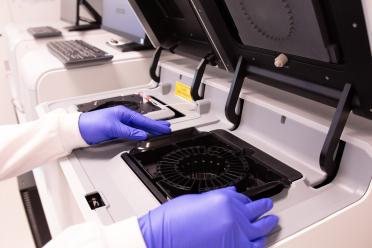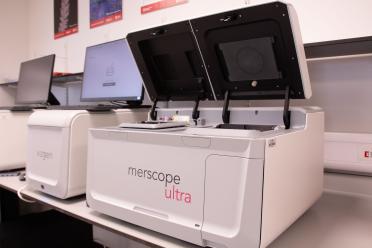
Across the biosciences, spatial transcriptomics is transforming our understanding of living systems, bringing spatial resolution to cellular genomics and reshaping fields from medicine and biotechnology to developmental biology.
Unlike traditional single-cell studies that require the dissociation of cells and tissue - resulting in the loss of important contextual information - spatial transcriptomics preserves tissue architecture. By measuring gene expression in situ, scientists can better understand differences in gene expression, identify cell-to-cell interactions, and visualise spatial organisation.
The new system builds on the Institute’s existing spatial transcriptomic infrastructure, enhancing Earlham Institute’s ability to address fundamental questions in cellular behaviour.
The Vizgen MERSCOPE UltraTM uses the MERFISH (Multiplexed Error Robust Fluorescence In Situ Hydridisation) technology, with two flow cell sizes - 1.25cm2 and 3cm2 - allowing for larger tissues or more replicates, to fit onto a single slide per run.
The Earlham Institute was an early adopter of this technology. Since the installation of the first Vizgen MERSCOPE platform in 2023, scientists have developed significant expertise in applying these techniques in both mammalian and plant systems, notably collaborating with researchers to spatially resolve 200 genes in developing wheat spikelets.
